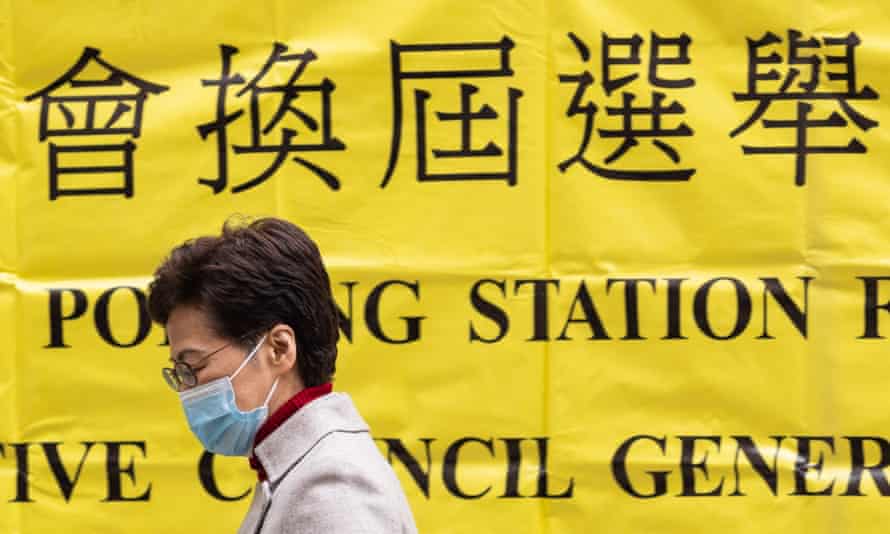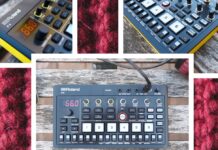Candidates in Hong Kong’s first “patriots only” legislative elections have made urgent appeals for votes as the turnout reached a new low halfway through the process.
After eight hours of voting, turnout was more than 10 percentage points lower than in the 2016 legislative council election. Official figures showed 21.02% of the electorate had voted, down from 31.16% at the same point five years ago.
Sunday’s polls, in which 153 candidates are competing for 90 seats, are the first to be held after Beijing overhauled the city’s electoral processes earlier this year, reducing the ratio of directly elected seats and introducing a two-tiered candidate-vetting process by national security police and officials to ensure only “patriots” can administer the city.
Hong Kong’s chief executive, Carrie Lam, told reporters after casting her vote that neither Beijing nor the local government had set targets for the voter turnout rate. Instead, Lam said her target was for the elections to be as efficient as possible.
The polls were open from 8.30 am to 10.30 pm, local time. The chairman of the Electoral Affairs Commission, Barnabas Fung, said he hoped the results of the election committee polls would be released by late Sunday evening, and for the results of the directly elected seats to be released by noon on Monday.
Over 10,000 officers were deployed across the city to “ensure a smooth process”, according to police chief Raymond Siu.

‘The situation is critical’
Residents were given free public transport rides on Sunday as part of the government’s push to encourage residents to vote. Polling stations were also set up at checkpoints at the city’s borders with mainland China to allow those living on the mainland to cast a vote.
The city’s number two official, John Lee, called on people to vote, saying candidates who have been banned from running for failing the “patriots” criteria would try to thwart the elections.
“People who have been excluded under the principles of patriots administering Hong Kong will be trying their best to make today’s election not be a success. We have to make sure that they will not succeed,” Lee told reporters after casting his vote. He added that the candidates were “broadly representative” of Hong Kong’s society.
By mid-afternoon volunteers were still pressing flyers on passersby near quiet polling booths, where lampposts were festooned with flags.
“The situation is critical,” Starry Lee, the head of the largest pro-Beijing party, DAB, said in a recorded loop played on a loudspeaker in the working class Wong Tai Sin district. “I urge everyone to vote.”
Others said they would not be voting, expressing anger at the changes that some said had turned the poll into a “selection” and the legislature into a “puppet”.
“Refusing to vote is apparently the only way for us to express our grievances,” said Peter, 21, a university student.
Unlike previous polls, pro-democracy candidates are largely absent, having declined to run, gone into exile or been jailed. Some overseas activists and foreign governments, including the United States, say the electoral changes have reduced democratic representation in the city.
Only four of the 35 candidates running for the 20 directly elected seats mentioned “democracy” or “universal suffrage” in their campaigns. The new system has reduced the proportion of legislators voters can directly elect from 53% to 22%.
The election rollout also saw early hiccups, with an online service to inform the public of expected queueing times at polling stations offline an hour after the polls opened because of “excessive usage”, according to a spokesperson for the Registration and Electoral Office.








